EP 675 Demystifying Mastery
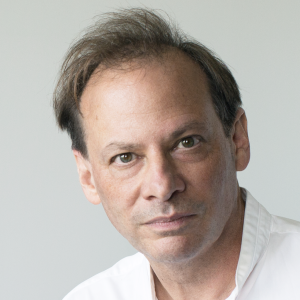 Despite many in our midst downplaying the role of experts in our society, the truth is that we thrive because people have mastered so many different skills and abilities. We do what we enjoy or do best and we outsource those things we do not want to attempt to them with full confidence that they will know how. Masters of one sort or another are all around us. It could be baking, boxing, the art of magic or drawing or a range of other pursuits that they have spent the time perfecting and bit by bit become highly proficient in doing. The preceding list was among the things our guest, master essayist Adam Gopnik tried himself and catalogued in his new book, “The Real Work: On the Mystery of Mastery.” He tells us early on that this is not a how-to book as much as it is a how to appreciate volume on what it means to have a mastered a new skill, what’s required and why there is such value in the process itself for the interior satisfaction it provides. Gopnik is a brilliant writer(and that’s surely a skill), but as an art critic for The New Yorker he leaves the observation deck and pursues mastery for himself, sharing many brilliant insights with us on this podcast.
Despite many in our midst downplaying the role of experts in our society, the truth is that we thrive because people have mastered so many different skills and abilities. We do what we enjoy or do best and we outsource those things we do not want to attempt to them with full confidence that they will know how. Masters of one sort or another are all around us. It could be baking, boxing, the art of magic or drawing or a range of other pursuits that they have spent the time perfecting and bit by bit become highly proficient in doing. The preceding list was among the things our guest, master essayist Adam Gopnik tried himself and catalogued in his new book, “The Real Work: On the Mystery of Mastery.” He tells us early on that this is not a how-to book as much as it is a how to appreciate volume on what it means to have a mastered a new skill, what’s required and why there is such value in the process itself for the interior satisfaction it provides. Gopnik is a brilliant writer(and that’s surely a skill), but as an art critic for The New Yorker he leaves the observation deck and pursues mastery for himself, sharing many brilliant insights with us on this podcast.
Podcast: Play in new window | Download
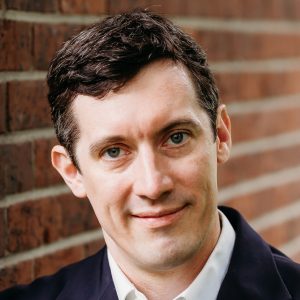 In March 2020, economic and social life across America ground to an abrupt halt as the country attempted to slow the spread of COVID-19. In the worst economic contraction since the Great Depression, twenty-two million people lost their jobs in the first few months of 2020. And yet somehow the finances of most Americans improved during the pandemic–savings went up, debt went down, and fewer people had trouble paying their bills. A combination of factors resulted in this unanticipated economic circumstance, including fast and effective government intervention(the Cares Act), more generous unemployment benefits, changes in lifestyle and spending habits and rent and college loan abatement for an extended period. It dispelled the notion that at least on some fronts, America was incapable of responding to a crisis in a bipartisan and impactful way. (The health response certainly leaves open this question in that sphere.) In the new book, “The Pandemic Paradox: How the Covid Crisis Made Americans More Financially Secure”, economist Scott Fulford shares the empirical evidence of this counter-intuitive story and what we find as our economic reality in the wake of the pandemic.
In March 2020, economic and social life across America ground to an abrupt halt as the country attempted to slow the spread of COVID-19. In the worst economic contraction since the Great Depression, twenty-two million people lost their jobs in the first few months of 2020. And yet somehow the finances of most Americans improved during the pandemic–savings went up, debt went down, and fewer people had trouble paying their bills. A combination of factors resulted in this unanticipated economic circumstance, including fast and effective government intervention(the Cares Act), more generous unemployment benefits, changes in lifestyle and spending habits and rent and college loan abatement for an extended period. It dispelled the notion that at least on some fronts, America was incapable of responding to a crisis in a bipartisan and impactful way. (The health response certainly leaves open this question in that sphere.) In the new book, “The Pandemic Paradox: How the Covid Crisis Made Americans More Financially Secure”, economist Scott Fulford shares the empirical evidence of this counter-intuitive story and what we find as our economic reality in the wake of the pandemic.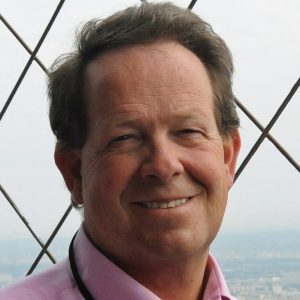 The January 6, 2021 insurrection at the U.S. Capitol was at once an end-the culmination of long-simmering strain of violent American extremism–and a beginning. In effect, it’s the origins of a new war on democracy by a fundamentally antidemocratic far-right movement that, cynically and ironically, calls itself a ‘”Patriot” movement. They are anything but, according to our guest David Niewert an award-winning investigative journalist who has made right wing extremism his beat for over forty years. In his new book, “The Age of Insurrection: The Radical Right’s Assault on American Democracy” he details chapter and verse the forces at play in America that explain an anger and turbulence that has taken on many forms since the KKK in the early twentieth century and fueled by events like Ruby Ridge and Waco in another incarnation. Yet it wasn’t until a sitting President, Donald Trump, gave legitimacy to conspiracy theories and these theorists that the movement took on a new, and more dangerous, dimension. Adding to the mix are what he calls “conflict entrepreneurs,” like Alex Jones and Steve Bannon, fueled by social media, cooking up a more lethal toxic brew that cannot be ignored in 2023
The January 6, 2021 insurrection at the U.S. Capitol was at once an end-the culmination of long-simmering strain of violent American extremism–and a beginning. In effect, it’s the origins of a new war on democracy by a fundamentally antidemocratic far-right movement that, cynically and ironically, calls itself a ‘”Patriot” movement. They are anything but, according to our guest David Niewert an award-winning investigative journalist who has made right wing extremism his beat for over forty years. In his new book, “The Age of Insurrection: The Radical Right’s Assault on American Democracy” he details chapter and verse the forces at play in America that explain an anger and turbulence that has taken on many forms since the KKK in the early twentieth century and fueled by events like Ruby Ridge and Waco in another incarnation. Yet it wasn’t until a sitting President, Donald Trump, gave legitimacy to conspiracy theories and these theorists that the movement took on a new, and more dangerous, dimension. Adding to the mix are what he calls “conflict entrepreneurs,” like Alex Jones and Steve Bannon, fueled by social media, cooking up a more lethal toxic brew that cannot be ignored in 2023 Mankind has been fascinated by this question since we began conjuring up big thoughts about things around us and things unseen, but imagined. Today the search for the answer to that question seems to have intensified beyond ‘War of the Worlds’ broadcasts and classic Star Trek episodes. The government has developed new agencies to legitimize the search and future explorations to the far side of the moon and Mars. This effort is complemented by the most powerful technology to detect and will be deployed in search of…what exactly? Our guest, Jaime Green, an acclaimed science journalist and author of “The Possibility of Life: Science, Imagination, and Our Quest for Kinship in the Cosmos,” says are quest reflects our values, our fears and, most importantly, our enduring sense of hope. As the search for Extra Terrestrial Intelligence gets turned up a notch, she reminds us that pondering its existence is less important than answering the question “what if.” Intrigued? Listen in.
Mankind has been fascinated by this question since we began conjuring up big thoughts about things around us and things unseen, but imagined. Today the search for the answer to that question seems to have intensified beyond ‘War of the Worlds’ broadcasts and classic Star Trek episodes. The government has developed new agencies to legitimize the search and future explorations to the far side of the moon and Mars. This effort is complemented by the most powerful technology to detect and will be deployed in search of…what exactly? Our guest, Jaime Green, an acclaimed science journalist and author of “The Possibility of Life: Science, Imagination, and Our Quest for Kinship in the Cosmos,” says are quest reflects our values, our fears and, most importantly, our enduring sense of hope. As the search for Extra Terrestrial Intelligence gets turned up a notch, she reminds us that pondering its existence is less important than answering the question “what if.” Intrigued? Listen in. What happens when an optimist asks the question ‘what will the world that I leave to my 19 year-old daughter look like when she’s my age in 2063?’ When it’s put in the observant and skillful hands of a man who has been recognized for changing the face of nature writing after twenty five years in the wilds and 12 books to his credit, you get “A Traveler’s Guide to the End of the World: Tales of Fire, Wind, and Water.” David Gessner wants to be hopeful. Really, he does. However, as he set out to answer that question he saw in 18 months’ time records being set for the earliest storms, the largest fires, the latest first snowfall, the hottest days on record and a hastened pace of catastrophe. Is this all a coincidence when it’s occurring out his back window in the Outer Banks of North Carolina or in the forests surrounding Paradise, California? He wants his daughter to be able to step outside her door in the summer, observe the stars at night and avoid choking on fires raging in every season. Is that too much to hope for? Let’s hear from a man who cares passionately about the great outdoors.
What happens when an optimist asks the question ‘what will the world that I leave to my 19 year-old daughter look like when she’s my age in 2063?’ When it’s put in the observant and skillful hands of a man who has been recognized for changing the face of nature writing after twenty five years in the wilds and 12 books to his credit, you get “A Traveler’s Guide to the End of the World: Tales of Fire, Wind, and Water.” David Gessner wants to be hopeful. Really, he does. However, as he set out to answer that question he saw in 18 months’ time records being set for the earliest storms, the largest fires, the latest first snowfall, the hottest days on record and a hastened pace of catastrophe. Is this all a coincidence when it’s occurring out his back window in the Outer Banks of North Carolina or in the forests surrounding Paradise, California? He wants his daughter to be able to step outside her door in the summer, observe the stars at night and avoid choking on fires raging in every season. Is that too much to hope for? Let’s hear from a man who cares passionately about the great outdoors. By revisiting her mother’s central role in helping write and push through the first anti-abortion bill in America in New York State, our guest Felicia Kornbluh , author of “A Woman’s Life is a Human Life” has a unique perspective on where the fight for reproductive rights goes from here, now that it falls to states once again. In our wide ranging conversation we discuss a unique twist to her mother’s story as a leader in the movement against sterilization abuse lived right down the hall from her mother, yet their two women’s health crusades never intersected. She feels that this was a mistake and the women’s rights movement today needs to represent a broader coalition, encompassing more issues. It comes at a time when even the Equal Rights Amendment, never passed, is once again being discussed and, perhaps, revived.
By revisiting her mother’s central role in helping write and push through the first anti-abortion bill in America in New York State, our guest Felicia Kornbluh , author of “A Woman’s Life is a Human Life” has a unique perspective on where the fight for reproductive rights goes from here, now that it falls to states once again. In our wide ranging conversation we discuss a unique twist to her mother’s story as a leader in the movement against sterilization abuse lived right down the hall from her mother, yet their two women’s health crusades never intersected. She feels that this was a mistake and the women’s rights movement today needs to represent a broader coalition, encompassing more issues. It comes at a time when even the Equal Rights Amendment, never passed, is once again being discussed and, perhaps, revived.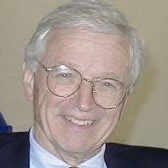 It’s fitting that we post this podcast on the 4th of July, as we ask what we can do for our country at a time when it is facing numerous challenges within and without. Ted Hollander has been leading a one man crusade through his Step Forward America! effort for a National Service program which has both a mandatory and voluntary component to it. We have all heard about the fine work of the Peace Corps, Americares, Teach for America and other service programs, as well as the New Deal Civilian Conservation Corps back in the day. Mr. Hollander, author of the book, “Bachelors of Citizenship: A Common Corps for a Citizen Corps.” has developed a three legged stool, as he calls it, of an education focusing on civics, media literacy and others lessons designed to foster good citizenship, three months of national service basic training, and a voluntary one or two years of civilian or military national service. There are new proponents of this type of work joining the effort as Gov. Wes Moore of Maryland is proposing his own version of a service opportunity for young people in his state. It’s a re-emerging trend in America…and one that is sorely needed.
It’s fitting that we post this podcast on the 4th of July, as we ask what we can do for our country at a time when it is facing numerous challenges within and without. Ted Hollander has been leading a one man crusade through his Step Forward America! effort for a National Service program which has both a mandatory and voluntary component to it. We have all heard about the fine work of the Peace Corps, Americares, Teach for America and other service programs, as well as the New Deal Civilian Conservation Corps back in the day. Mr. Hollander, author of the book, “Bachelors of Citizenship: A Common Corps for a Citizen Corps.” has developed a three legged stool, as he calls it, of an education focusing on civics, media literacy and others lessons designed to foster good citizenship, three months of national service basic training, and a voluntary one or two years of civilian or military national service. There are new proponents of this type of work joining the effort as Gov. Wes Moore of Maryland is proposing his own version of a service opportunity for young people in his state. It’s a re-emerging trend in America…and one that is sorely needed.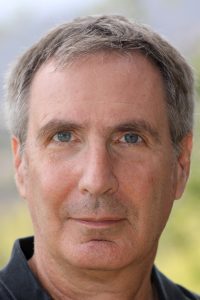 Extremists come in many forms. Some carry a weapon. Others carry around a myth that can be just as harmful. While in their previous best-selling book “Merchants of Doubt” Naomi Oreskes and our guest, Erik Conway, explained how four physicists laid the groundwork for climate change denial by arguing against government regulation, in their new book “The Big Myth: How American Business Taught Us to Loathe Government and Love the Free Market,” explains how so many bought into the notion that a pure, unadulterated and a barely regulated free market would be in the public’s interest. While the authors acknowledge that markets do some things well, like setting prices and rewarding work, true market fundamentalism, as has been practiced in recent years, was designed to persuade Americans that business should be left alone. In effect, government should play a minuscule role in making certain the playing field, and work and safety conditions, were regulated, lest it muck up the process. This type of laissez fair capitalism goes far beyond Adam Smith’s concept of the invisible hand. It also has led to things like inaction on climate change, an opioid scourge and near banking collapse in 2008-09. With market fundamentalism comes many external costs which society must contend with.
Extremists come in many forms. Some carry a weapon. Others carry around a myth that can be just as harmful. While in their previous best-selling book “Merchants of Doubt” Naomi Oreskes and our guest, Erik Conway, explained how four physicists laid the groundwork for climate change denial by arguing against government regulation, in their new book “The Big Myth: How American Business Taught Us to Loathe Government and Love the Free Market,” explains how so many bought into the notion that a pure, unadulterated and a barely regulated free market would be in the public’s interest. While the authors acknowledge that markets do some things well, like setting prices and rewarding work, true market fundamentalism, as has been practiced in recent years, was designed to persuade Americans that business should be left alone. In effect, government should play a minuscule role in making certain the playing field, and work and safety conditions, were regulated, lest it muck up the process. This type of laissez fair capitalism goes far beyond Adam Smith’s concept of the invisible hand. It also has led to things like inaction on climate change, an opioid scourge and near banking collapse in 2008-09. With market fundamentalism comes many external costs which society must contend with. To hear a great historian of America’s early history come to the realization that America’s victory over the British in the Revolutionary War was second to its defeat of the scourge of smallpox at the time is pretty stunning. Then he makes a compelling case that the virus had to be conquered in order to have the capacity to beat such an estimable force. It all makes sense and reminds us that when a society has its health, like an individual, it can perform at its best. The real question is whether given our performance as a nation, did we learn that lesson even as the science of medicine should have brought us a much better result than what we evidenced during the recent COVID-19 pandemic? So much of it has to do with Americans’ sense of individual liberty and shared responsibility. In our conversation with Andrew Wehrman, author of “The Contagion of Liberty: The Politics of Smallpox in the American Revolution”, we will return to debates and divides that regrettably remain in our body politic to this day, thus affecting the health of bodies throughout our country.
To hear a great historian of America’s early history come to the realization that America’s victory over the British in the Revolutionary War was second to its defeat of the scourge of smallpox at the time is pretty stunning. Then he makes a compelling case that the virus had to be conquered in order to have the capacity to beat such an estimable force. It all makes sense and reminds us that when a society has its health, like an individual, it can perform at its best. The real question is whether given our performance as a nation, did we learn that lesson even as the science of medicine should have brought us a much better result than what we evidenced during the recent COVID-19 pandemic? So much of it has to do with Americans’ sense of individual liberty and shared responsibility. In our conversation with Andrew Wehrman, author of “The Contagion of Liberty: The Politics of Smallpox in the American Revolution”, we will return to debates and divides that regrettably remain in our body politic to this day, thus affecting the health of bodies throughout our country. The term feminist has been maligned by both the right and the left, for different reasons, even though the concept of equality for women is a generally accepted principle and one that many women, no matter their politics, fought to insure. The ideas of feminism were first articulated by women personally involved in the American Revolution. In her book, “Fearless Women: Feminist Patriots from Abigail Adams to Beyonce”, our guest Elizabeth Cobbs introduces us to women who exemplified the activism and struggles throughout our history to be afforded the opportunity to learn, speak, compete, lobby, vote, have equal treatment under the law, and physical safety. This latter point as evidenced by the Me#Too movement in still a work in progress. And there is a new groundswell to pass the Equal Rights Amendment to the Constitution, now many decades dormant. Given the recent Supreme Court ruling overturning Roe v. Wade and limits placed on women’s health in many states, the struggles of women in our society still go on. With women achieving in fields and endeavors previously closed to them it is a good time to look at how we got here and what’s ahead for feminism.
The term feminist has been maligned by both the right and the left, for different reasons, even though the concept of equality for women is a generally accepted principle and one that many women, no matter their politics, fought to insure. The ideas of feminism were first articulated by women personally involved in the American Revolution. In her book, “Fearless Women: Feminist Patriots from Abigail Adams to Beyonce”, our guest Elizabeth Cobbs introduces us to women who exemplified the activism and struggles throughout our history to be afforded the opportunity to learn, speak, compete, lobby, vote, have equal treatment under the law, and physical safety. This latter point as evidenced by the Me#Too movement in still a work in progress. And there is a new groundswell to pass the Equal Rights Amendment to the Constitution, now many decades dormant. Given the recent Supreme Court ruling overturning Roe v. Wade and limits placed on women’s health in many states, the struggles of women in our society still go on. With women achieving in fields and endeavors previously closed to them it is a good time to look at how we got here and what’s ahead for feminism.